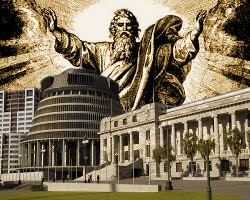 Do our religious beliefs have any place in our political and public life?
Do our religious beliefs have any place in our political and public life?
This is the first of 2 episodes on religion in the public square, a subject that will probably come up from time to time at the podcast.
Podcast: Play in new window | Download

 Do our religious beliefs have any place in our political and public life?
Do our religious beliefs have any place in our political and public life?
This is the first of 2 episodes on religion in the public square, a subject that will probably come up from time to time at the podcast.
Podcast: Play in new window | Download
Powered by WordPress & Theme by Anders Norén
semmie
what of Mary and the principle of secular motivation? i got stuck there, and listened to this part several times before moving on (and still wasn’t sure it made sense to me).
how can a christian even be motivated by some secular reason? actually, my initial thought was “oh, that’s simple!” but i don’t think it is! my religious basis for encouraging Mary not to have an abortion might be that each life is precious and has value. my secular basis for encouraging Mary not to have an abortion might be that there are serious health risks for women; that there are emotional risks for women; or something akin to those ideas. but underlying those ideas is still a basic value for human life (instilled in me by, you guessed it, my christian faith)–otherwise it wouldn’t much concern me whether Mary risks her health or her emotional state of mind.
if you are a christian, your entire person and worldview is affected (or should be, in my opinion) by your faith. how do you isolate that foundation? i’m just not sure you can.
Glenn
Semmie, I agree actually. I won’t be going into every critique of prohibitionism in these two episodes on the subject, but in my thesis I went into the issue you’re talking about: To just assume (as Audi and others do) that a person can have a moral motivation that is not religious at all – that’s just to tell a large number of Christians that their theory of the basis of morality is false. It’s not neutral at all.